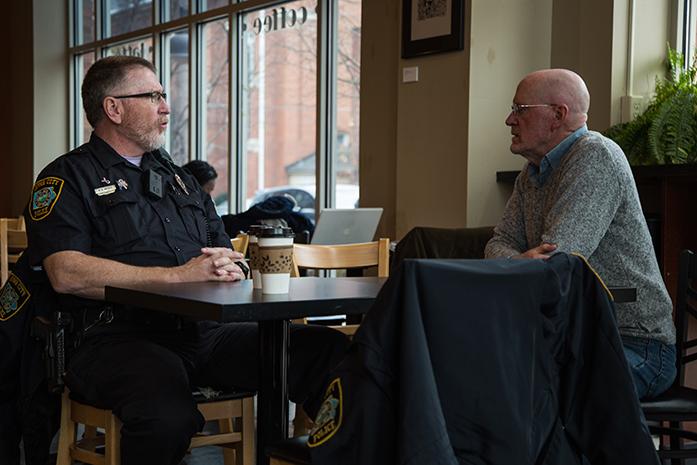By Molly Hunter
In light of recent events, the Iowa City City Council has taken a stance against violence and intimidating rhetoric in the community.
The council’s resolution in support of a safe community for all passed 7-0 on Tuesday evening.
The resolution’s language was based partly on comments by Councilors Kingsley Botchway and Rockne Cole during the council’s Nov. 15 meeting, as well as the wording of Mayor Jim Throgmorton’s Nov. 17 statement supporting a diverse and safe community.
“It rejects acts of intimidation, whether they be verbal or physical, and really tries to express a strong sense of where our community stands on this,” Throgmorton said. “We all know there’s motion underway to scare people, to instill fear into their hearts, to force people out of this country, to undermine many of the basic purposes and principles of this country.”
During the meeting, speakers referred to recent instances of inflammatory graffiti in the community, the experiences of students in local schools, and the discovery of a racist note on a local family’s door several weeks ago.
The council’s resolution was a direct response to these and other events.
“This isn’t political,” Botchway said. “It’s a people issue. Frankly, people are scared.”
He urged residents to engage in progressive action and emphasized the importance of being willing to improve.
“As we’re working through this heightened time, this heightened climate, we’re going to make mistakes,” he said.
Shams Ghoneim, the head of the Human Rights Commission, said the act of reaching out may be the best path toward progress.
“Beyond statements of support, both city government staff and others individually must reach out in solidarity to their own neighbors, students, and communities different from themselves,” she said.
Tab Wiggins, the University of Iowa assistant director for equity and inclusion in the Office of Student Life, believes the city government should make an intentional effort to reach out and meet UI students. She suggested town-hall forums located on campus may be one way to accomplish this.
“Maybe figuring out a way to go to the cultural houses and use the stage the students are utilizing … and bring students into the fold, whether that’s creating student positions or ally positions in the city government,” Wiggins said. “I think it needs to be something that’s very intentional.”
She also emphasized the importance of united action.
“Students can’t do it, faculty can’t do it, campus can’t do it, and neither can the city,” she said. “Not alone — it must be in collaboration.”
Ghoneim expressed the same belief.
“It starts with each one of us,” she said. “We must stand together, speak up against hate, and say it loud and clear that what hurts one of us, hurts all of us.”



